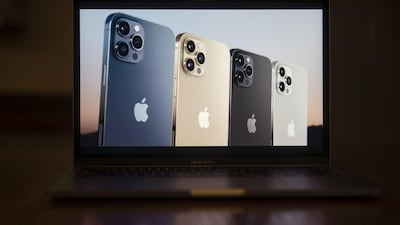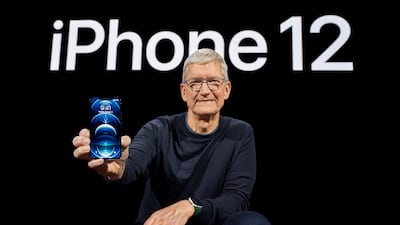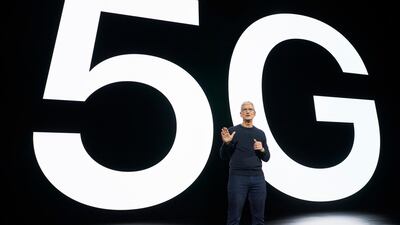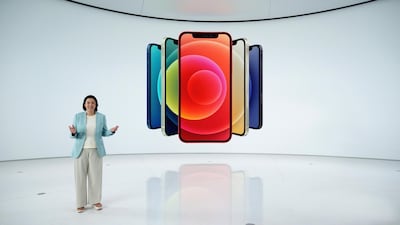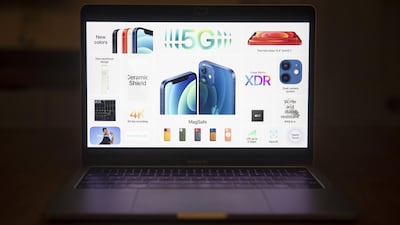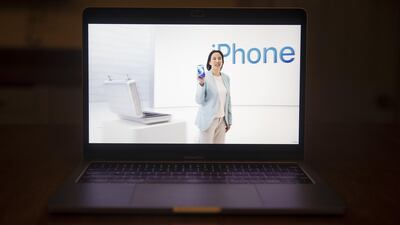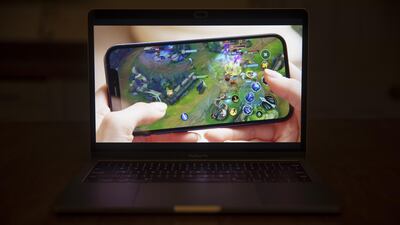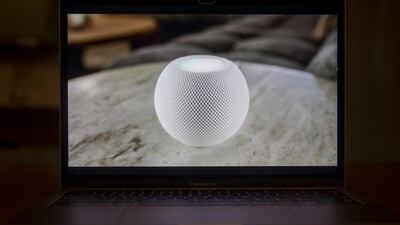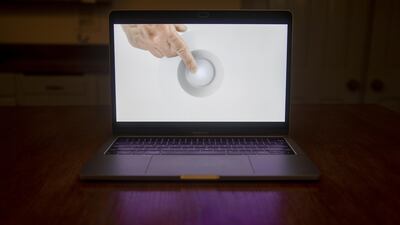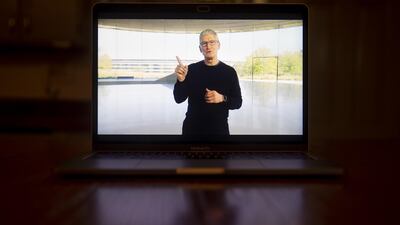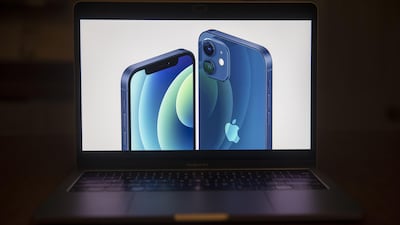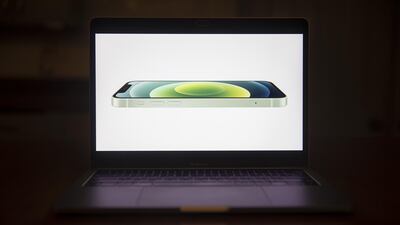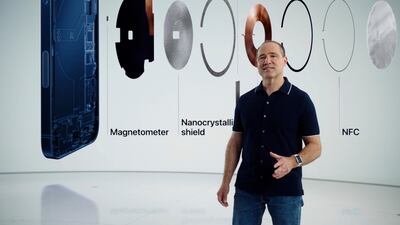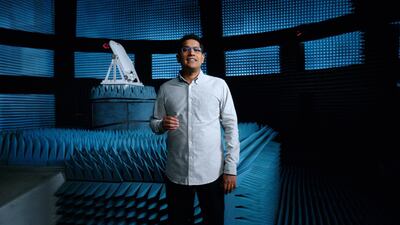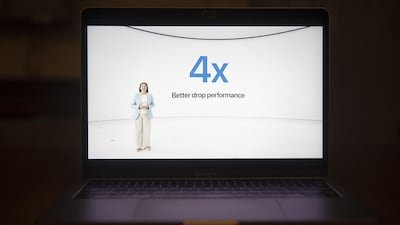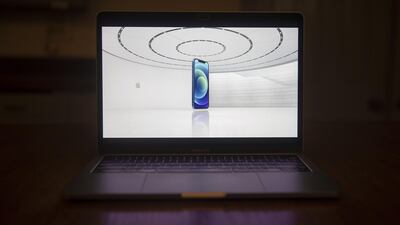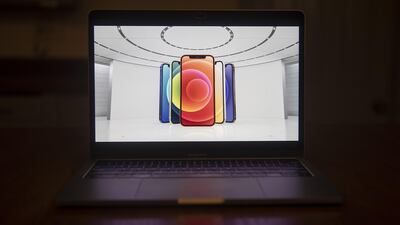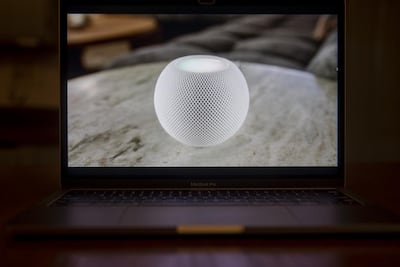Apple launched its iPhone 12 series, the company’s first 5G-enabled phones, as the competition for fifth-generation technology dominance heats up.
The new models – the iPhone 12 mini, iPhone 12, iPhone 12 Pro and iPhone 12 Pro Max – were released at an event at the company’s headquarters in Cupertino, California, on Tuesday, which was held online this year due to the Covid-19 pandemic.
“Today is the beginning of a new era for iPhone. Today we are bringing 5G to the iPhone,” said Apple’s chief executive Tim Cook.
“This is a huge moment for all of us, we are really excited ... 5G will bring new levels of performance for downloads, uploads, higher-quality video streaming, more responsive gaming and real-time interactivity.”
For budget-conscious customers, the iPhone 12 mini and 12 models start from Dh2,999 ($816.50) and Dh3,399, respectively. The iPhone 12 Pro costs Dh4,199 while the iPhone 12 Pro Max starts at Dh4,699.
With a 13.7-centimetre display, the iPhone 12 mini is the smallest, thinnest and lightest 5G smartphone in the market, the company claimed.
This is the first time Apple has released an iPhone with a smaller screen than the previous year’s models.
The iPhone 12 and the iPhone 12 Pro have a screen size of 15.5cm screen while the iPhone 12 Pro Max has a 17cm display, the largest yet.
The Pro Max model also has the brand’s highest resolution of about 3.5 million pixels.
The new Pro models have an industry-leading IP68 rating and can withstand being submerged in water up to six metres for about 30 minutes.
The new phones will have storage that ranges from 64GB to 512GB, depending on the model.
“This is a huge leap for iPhone, bringing the best 5G experience in the market and delivering our most advanced technology to users who want the absolute most from their iPhone,” said Greg Joswiak, Apple’s senior vice president of worldwide marketing.
“We are once again pushing the boundaries to deliver incredible computational photography advancements, super retina displays and the biggest leap in durability in iPhone history.”
A 5G network promises internet speeds of up to 1.2 gigabits per second, which will gradually reach 10 gigabits per second – more than 100 times faster than 4G.
With a wider global installation of 5G networks expected this year, smartphone companies are preparing to provide more 5G-enabled devices that are cheaper.
Manufacturers such as Huawei, LG, Motorola and OnePlus are already selling 5G phones.
To ensure faster browsing speeds, the new iPhones have an A14 bionic chip that uses five-nanometre process technology – a first in the smartphone industry – that results in processing times that are up to 50 per cent quicker than other competing smartphone chips.
The chip has a 16-core neural engine for an 80 per cent increase in performance, which is capable of completing 11 trillion operations a second, the company said.
The new phones also have a smart data mode, which extends battery life by assessing 5G needs and balancing data use, speed and power in real time.
They offer powerful computational photography features enabled by the A14 bionic chip.
The iPhone 12 mini and the iPhone 12 have two rear cameras, while the iPhone Pro models have three cameras at the back.
However, the phones will reach consumers in phases, despite being launched on the same day. The company will begin to take orders for the iPhone 12 and the iPhone 12 Pro models from tomorrow, while the 12 mini and the 12 Pro Max devices will be available from November 6.
The technology company also unveiled a new smart speaker called the HomePod Mini that costs $99 and can recognise different voices, run Siri and work with Apple Music.
Apple is removing the power adapter and ear pods from iPhone packaging to reduce carbon emissions and reduce the use of precious materials.
The smaller and lighter packaging will result in 70 per cent more boxes being shipped on a pallet.
Taken altogether, these changes will cut more than 2 million tonnes of carbon emissions annually, equal to removing about 450,000 cars from the roads a year, Apple said.
